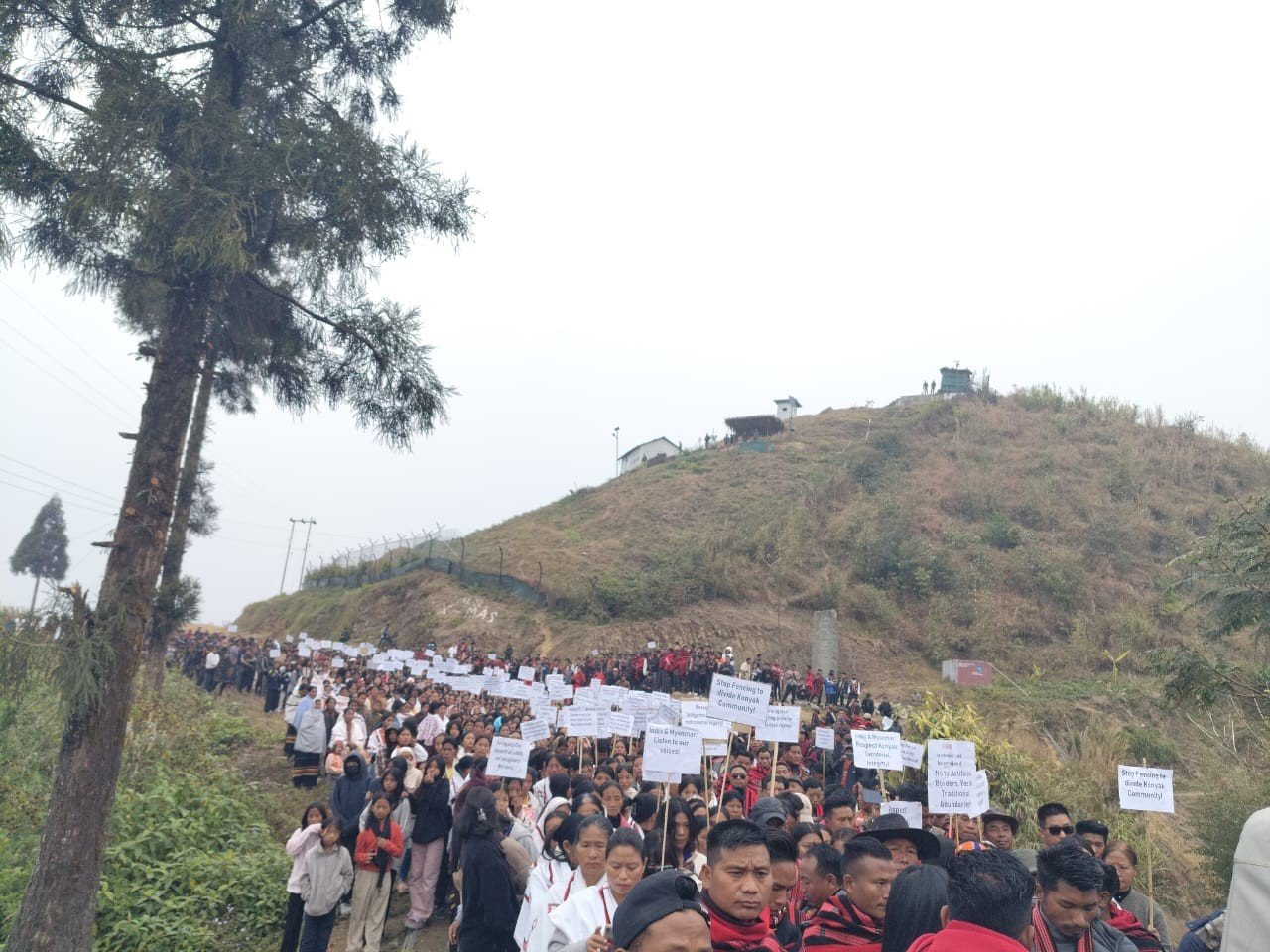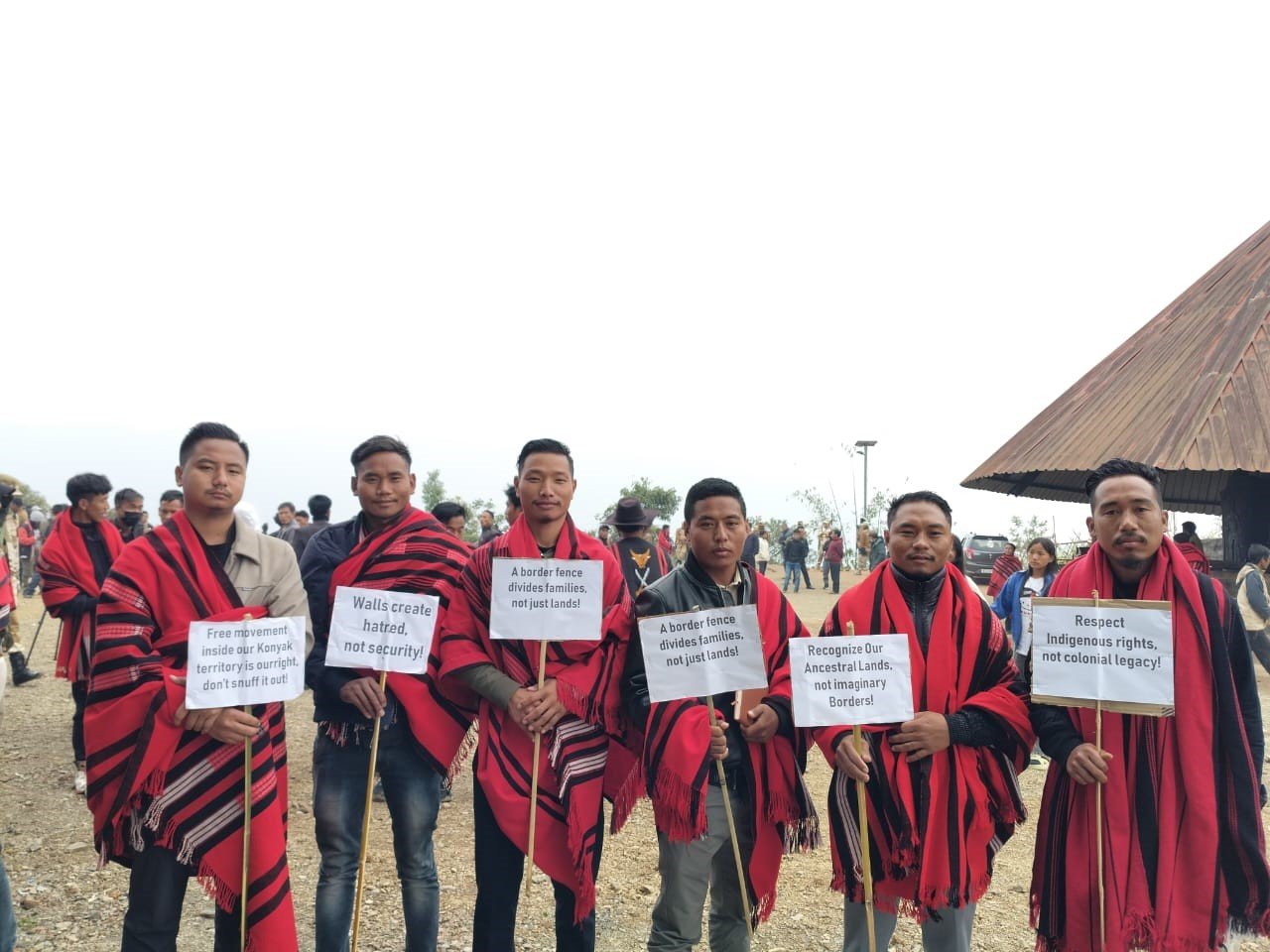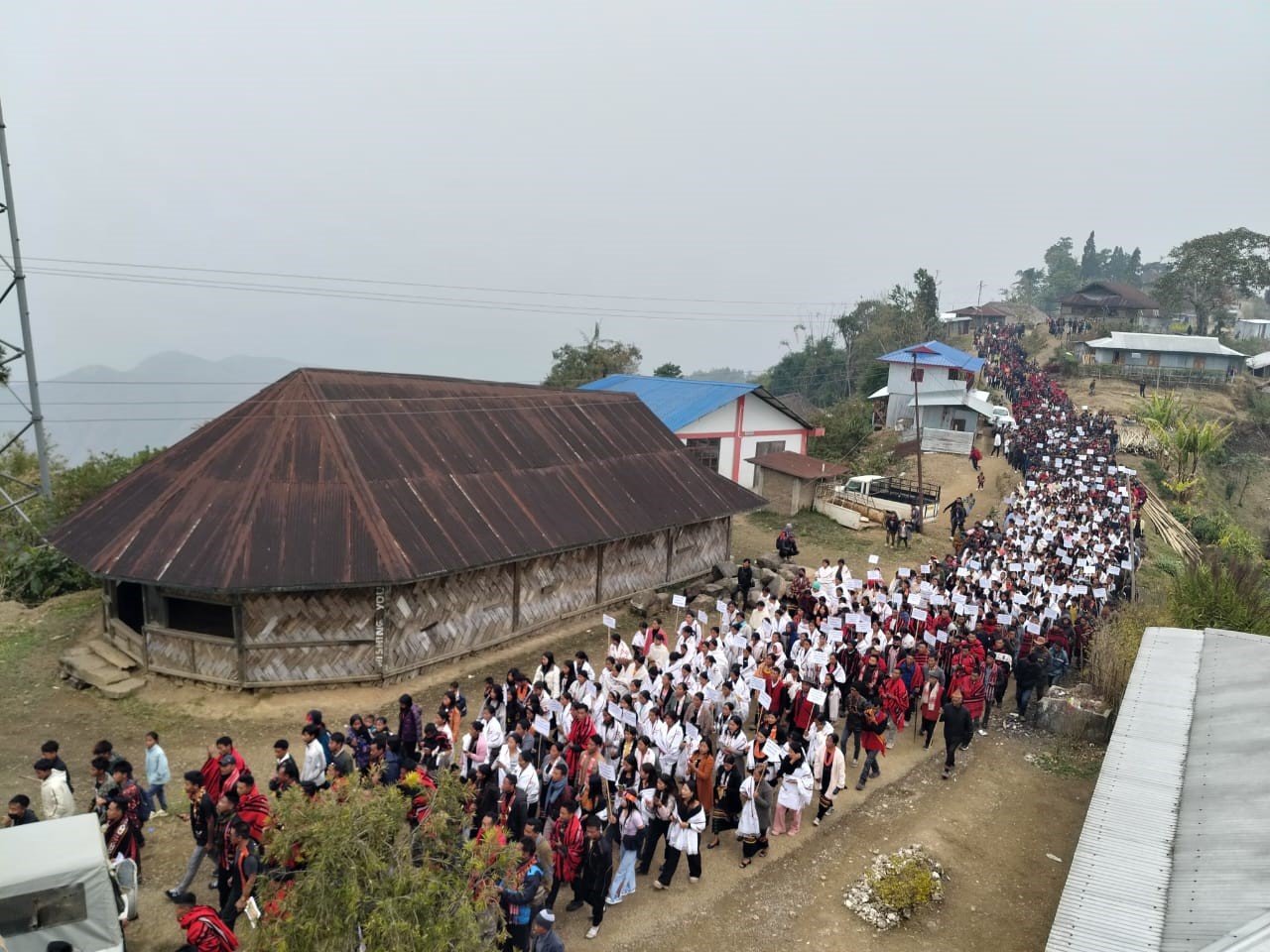A public rally against the Indo-Myanmar border fencing and scrapping of Free Movement Regime (FMR), organised by the Konyak Union, was held in Longwa on February 3.
The public march began at the LSU Park and culminated at the Chief Angh’s residence complex, Longwa.
The Konyak Union also submitted an appeal to the Governor of Nagaland through the Deputy Commissioner of Mon requesting for the reconsideration of border fencing along India-Myanmar and retain the Free Movement Regime (FMR) Provision of 2018.
“This decision will have a profoundly adverse impact on the Konyak Naga community, whose ancestral lands and people have been inseparably connected on both sides of the border since time immemorial,” implored the Union.
The border demarcation between India and Myanmar originated in arbitrary colonial decisions, beginning with the Treaty of Yandabo in 1826, followed by modifications in 1834, 1881, 1894, 1896, 1921, 1992, and finalized at the Yangon Agreement on 10th March 1967 between Premier Zhou, Jawaharlal Nehru, and U Nu. The appeal also noted that the historical agreements were made without the consent or knowledge of the Konyak Naga community, whose territories were split without regard for the indigenous population’s cultural, social, and familial ties.
Download Nagaland Tribune app on Google Play

“The Konyak community has always lived as one people, sharing land, resources, and kinship across this imposed border. Many Konyak villages, including those within the Indian territory, have large portions of their agricultural lands situated in Myanmar. The fencing of this boundary will not only deprive them of their farming lands but also severely disrupt their livelihoods, causing unimaginable hardship. It will also lead to the loss of vital connections for Konyak families residing inside Myanmar, who depend heavily on the Indian side for ration, daily needs, and basic necessities,” expressed the Union.

It also emphasised on the concerning situation of Longwa village, where the border line arbitrarily cuts through the heart of the village. “It is inconceivable and deeply inhumane to consider erecting a fence through the center of such a community or to Impose pass permits on villagers who have lived freely across this land for generations,” shared the KU.
It also strongly asserted that if fencing is deemed necessary, it should follow the traditional boundary lines of the Konyak Naga community and not the artificial lines drawn by colonial and post-colonial authorities. “The Konyak community will not accept any forceful division of its land and people,” it cautioned.


